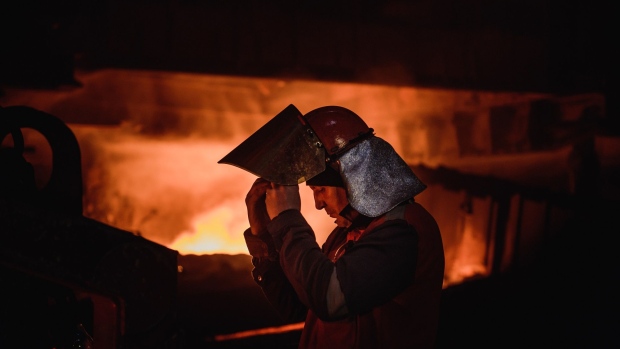Mar 20, 2021
U.K. Ministers Draw Up Contingency Plans to Save Liberty Steel
, Bloomberg News

(Bloomberg) -- British officials are drawing up contingency plans in case the government needs to step in to save Sanjeev Gupta’s Liberty Steel from collapse, amid fears that thousands of jobs in a critically important industry are at risk.
Business Secretary Kwasi Kwarteng and other senior officials have been holding intensive discussions with the company in recent days, aiming to secure the future of the steelmaker, according to people familiar with the matter.
Several potential contingency plans are under consideration, including one that would involve the government running the company with state funds while a potential buyer is sought, the people said, asking not to be identified because the discussions haven’t been made public. No decisions have been made, the company remains solvent and hasn’t asked for any specific help.
The future of Liberty Steel has been put in doubt by the unraveling of Greensill Capital, which is the biggest lender to Gupta’s GFG Alliance, of which Liberty is a part. GFG employs about 5,500 people at more than 30 sites in the U.K., including almost 3,000 at Liberty.
“The government is closely monitoring developments around Liberty Steel and continues to engage closely with the company, the broader U.K. steel industry and trade unions,” a government spokesperson said in a statement by email. “Recognising that the pandemic has had a significant impact across the whole U.K. economy, including steel producers, our unprecedented package of support is available to the sector to protect jobs and ensure that producers have the right support during this challenging time.”
A spokesman for GFG declined to comment.
Kwarteng recently said that while the government may be prepared to intervene, he can’t anticipate or guarantee any forms of support. The company management is drawing up its own potential solutions.
Even so, ministers are clear that state funds may need to be deployed to secure a company that’s strategically and politically important for Boris Johnson’s government. In 2019, ministers stepped in to support British Steel using state funds to keep operations going at a cost of 600 million pounds. The Financial Times earlier reported that ministers were considering repeating this policy with Liberty.
One of the reasons ministers want Liberty to continue operations is to avoid shutting down the steel furnaces -- because restarting them is a long and expensive process.
The British aerospace industry has been concerned over potential exposure to any difficulties that would affect Liberty, which is one of its specialist suppliers. Rolls-Royce Holdings Plc said this month it had been exploring alternative longer-term options in case it needs to source steel from other suppliers.
©2021 Bloomberg L.P.


